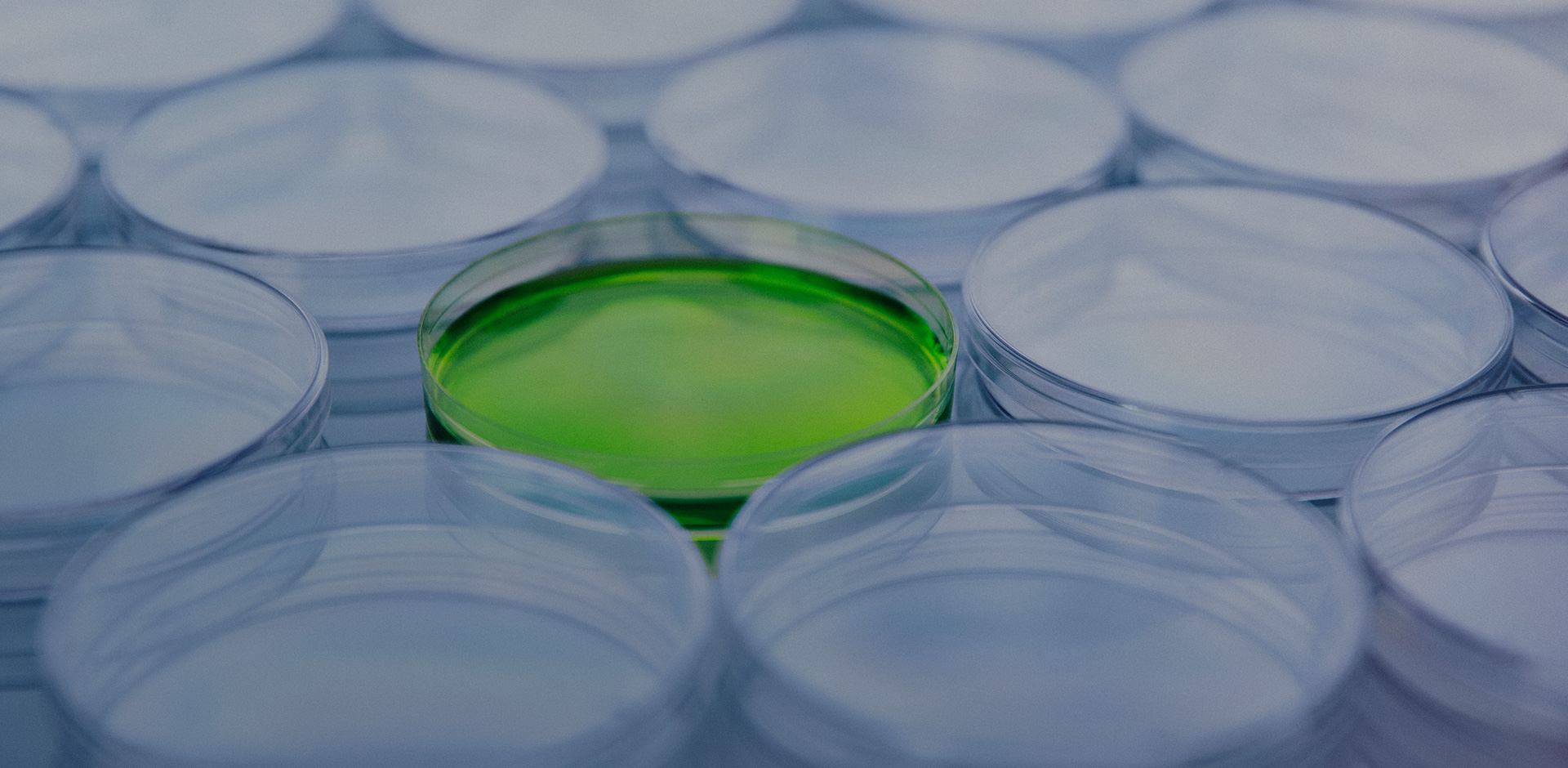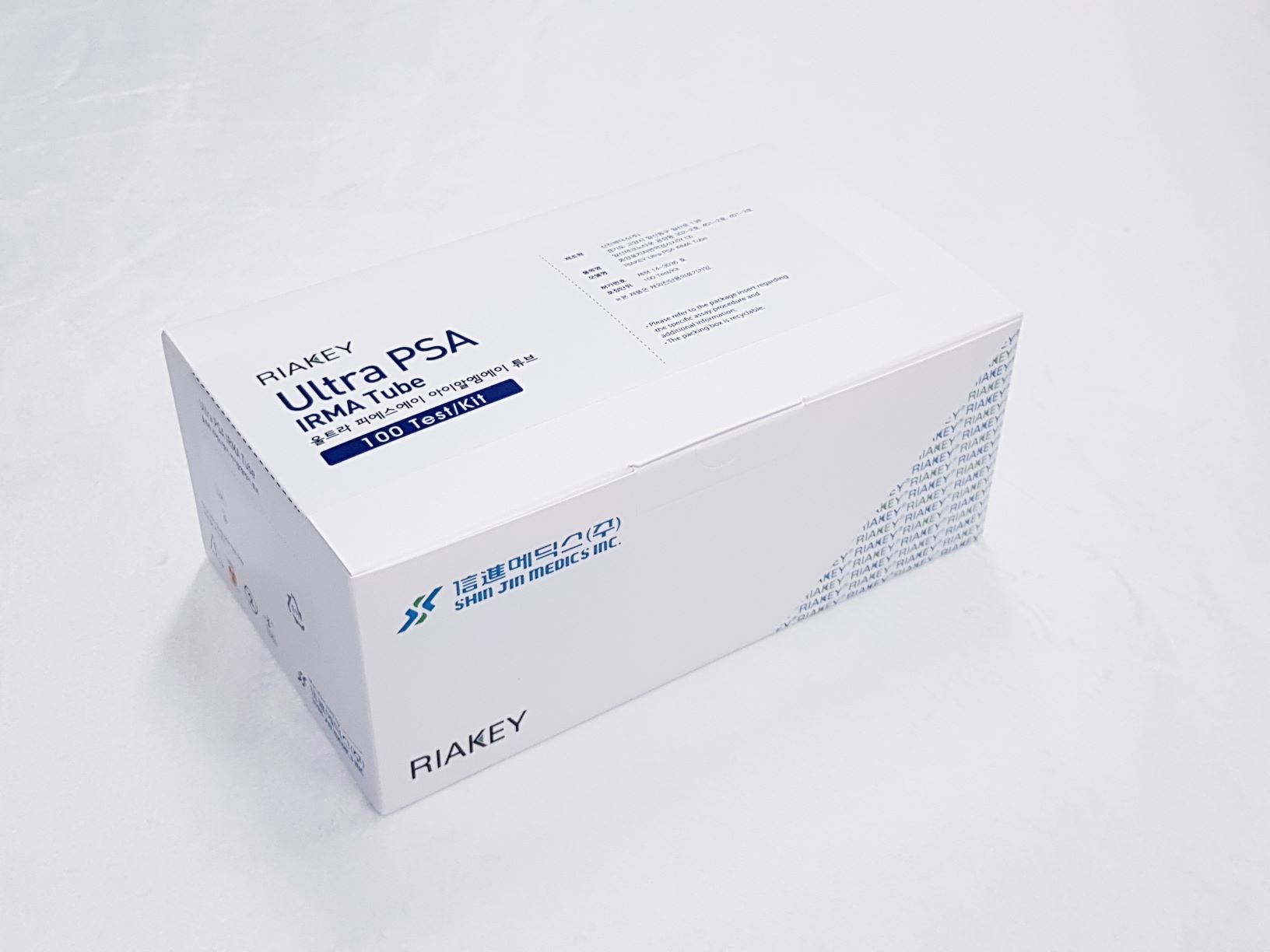Ultra PSA
Immunoradiometric assay for quantitative determination of prostate specific antigen (PSA) in human serum
Summary
-
KFDA Registration No
14-3036
-
CAT No
RC11N
-
TEST METHOD
IRMA
-
SAMPLE VOLUME
50 ul
-
INCUBATION TIME
30'+30'RT
-
STD RANGE
0-8 ng/ml
Download File
Intended Use
Immunoradiometric assay for quantitative determination of prostate specific antigen (PSA) in human serum or plasma
INTRODUCTION
The prostate is a male sex gland. It produces a thick fluid that forms part of the semen. The prostate is about the size of a walnut. It is located below the bladder and in front of the rectum. The prostate surrounds the upper part of the urethra, the tube that empties urine from the bladder. The prostate needs male hormones to function. The main male hormone is testosterone, which is made mainly by the testicles. Some male hormones are produced in small amounts by the adrenal glands.
PRINCIPLE OF THE ASSAY
The RIAKEY PSA IRMA Tube II is an one step non-competitive immunoradiometric (IRMA) method (“sandwich”). The method employs two highly specific monoclonal anti-PSA antibodies which recognize two different epitopes of the molecule. One antibody is coated on solid phase (coated tube), the other, specific for the PSA and labeled with Iodine-125, is used as a tracer. Antibody-coated polystyrene tubes serve as solid phase. The tracer antibody and the coated antibody react simultaneously with the PSA antigen present in the standards, control serum and samples. Unbounded material is removed by a washing step. The amount of bound tracer will be directly proportional to the PSA antigen concentration and the remaining radioactivity bound to the tubes is measured in a gamma scintillation counter.
Use Precaution
Be careful when handling all samples, reagents, or devices used in the test as they may be the source of infection.
All reagents, human body samples, etc. are handled at the designated location.
- Do not use mixed reagents from different lots.
- Do not use reagents beyond the expiration date.
- Use distilled water stored in clean container.
- Use an individual disposable tip for each sample and reagent, to prevent the possible cross-contamination among the samples.
- Store the unused coated tubes at 2~8ºC in the appropriate bags with silica gel and accurately sealed.
- If large quantity of assay would be performed at one time, there might be substantial time variation between 60 tubes at one time to minimize time variation. Also, do not exceed 10 minutes for entire pipetting.
- Wear disposable globes while handling the kit reagents and wash hands thoroughly afterwards.
- Do not pipette by mouth.
- Do not smoke, eat or drink in areas where specimens or kit reagents are handle.
- Handle samples, reagents and loboratory equipments used for assy with extreme care, as they may potentially contain infectious agents.
- When samples or reagents happen to be split, wash carefully with a 3% sodium hypochlorite solution.
- Dispose of this cleaning liquid and also such used washing cloth or tissue paper with care, as they may also contain infectious agents.
- Avoid microbial contamination when the reagent vial be eventually opend or the contents be handled.
- Use only for IN VITRO.

